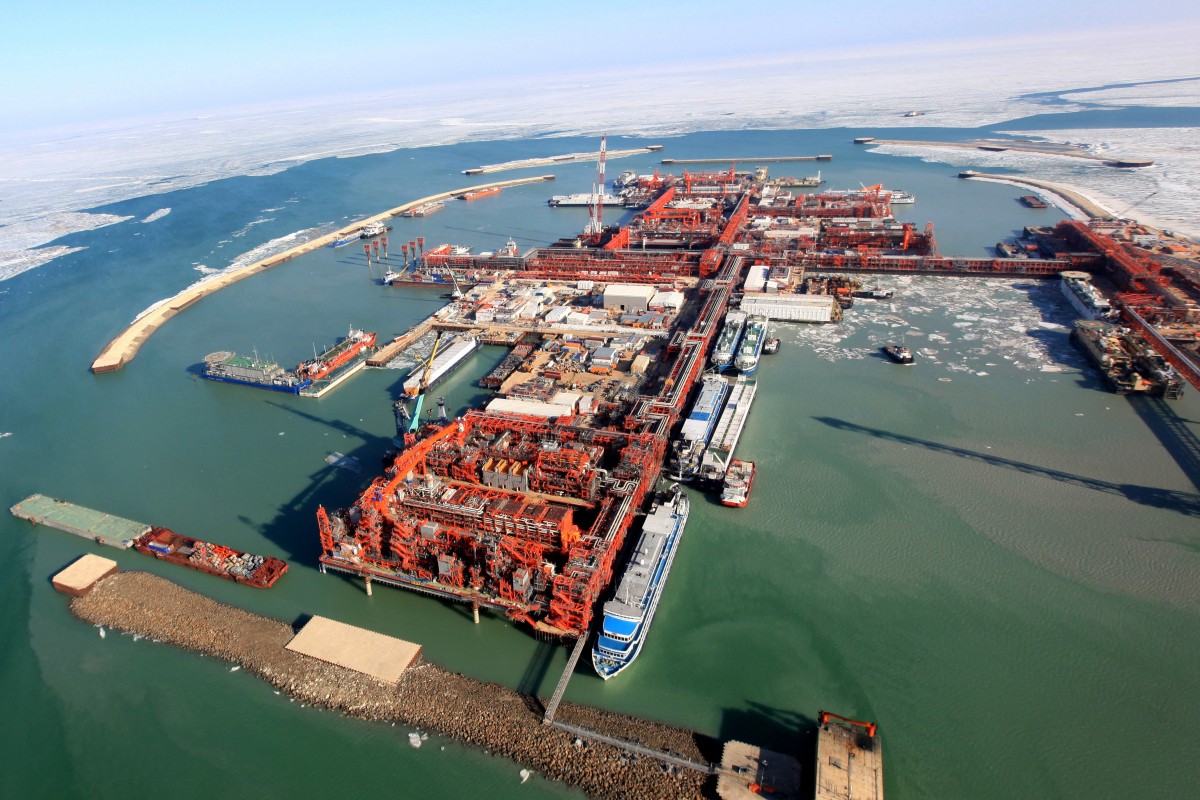Kazakhstan’s President Kassym-Jomart Tokayev revealed that Russia’s oil giant Lukoil would help Central Asia’s largest country develop oil fields located in Kazakhstan’s portion of the Caspian Sea.
The statement was made during the 17th Interregional Cooperation Forum of Kazakhstan and Russia held online on Thursday.
“We start developing the large Kalamkas-Sea and Khazar fields,” President Tokayev said. “The strategic partner from the Russian side has been identified - this is Lukoil. The total project cost will be about $5 billion.”
Kalamkas-Sea is an offshore field discovered in 2002 and located in the northeastern part of the Caspian Sea, near the giant Kashagan field — one of the world’s largest discoveries of the past four decades.
In 2013, North Caspian Operating Company N.V. (NCOC) — Kashagan’s operator — announced a commercial discovery at Kalamkas-Sea. Geological reserves at the oil field were reportedly estimated at about 150 million tons of oil and 15 billion cubic meters of gas. However, in 2019, NCOC, including energy giants such as Eni, Shell, ExxonMobil, Total, CNPC, Inpex, and KazMunayGas, all pulled out of the Kalamkas-Sea project.
Discovered in 2007, Khazar is also located next to the Kashagan field. The Caspi Meruerty Operating Company BV operates Khazar under a production sharing agreement, which includes KazMunayGas and Oman Pearls Company Limited. In 2019, the British-Dutch oil and gas conglomerate Shell scaled back its oil and gas exploration plans for Khazar due to “the low profitability of these projects against the background of high capital expenditures.” Before the withdrawal, Shell had invested about $900 million in the project.
Meanwhile, the Kazakh president believes it is also vital to facilitate the development of two gas fields, Khvalynskoye and Imashevskoye. Both are major joint projects with Russia.
“It is important to solve the commercial issues with Gazprom as soon as possible,” President Tokayev said, referring to Russia’s energy giant.
The oil and gas industries are the main pillars for Moscow and Nur-Sultan as both Russia and Kazakhstan are flush with hydrocarbons. The two post-Soviet countries have maintained strong partnerships in the energy sector through already existing close economic, technological, and transportation initiatives.
The project in Kazakhstan will not be a first for Lukoil, which has been involved there since 1995.
Together with Rosneft, the company has been responsible for exploring the Tengiz oil and gas field, which ranks as the world’s deepest supergiant oil field. In addition, Lukoil is responsible for exploring the Karachaganak (13.5 percent) and Zhenis block (50 percent). Reportedly, Lukoil is planning to invest about $350 million in exploration at the Zhenis block over 7-9 years.
Earlier this year, Lukoil signed a sales and purchase (SPA) agreement with KazMunayGas to acquire a 49.99 percent stake in the charter capital of Al-Farabi Operating LLP, a joint venture to develop an offshore block located in Kazakhstan’s portion of the Caspian Sea. According to Lukoil’s data, recoverable resources at the Al-Farabi block are estimated at 15.1 million tons.
Lukoil is also a member of the Caspian Pipeline Consortium, through which the crude oil is transported.







 Iran's senior military leaders described the drone and missile attack on Israel on April 14 night as “successful".
Iran's senior military leaders described the drone and missile attack on Israel on April 14 night as “successful".
 The number of evacuees from flooded areas in Kazakhstan has reached 97,852 people, including about 32,856 children since March 27.
The number of evacuees from flooded areas in Kazakhstan has reached 97,852 people, including about 32,856 children since March 27.
 Iranian President Ebrahim Raisi warned Israel that it would face a "real and extensive" response if it makes any "mistake" following Tehran’s missi...
Iranian President Ebrahim Raisi warned Israel that it would face a "real and extensive" response if it makes any "mistake" following Tehran’s missi...



